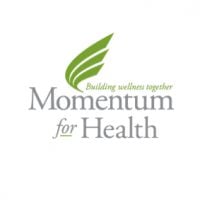Proyecto Primavera - Garner Family Care Corporation
Drug Rehab Center in San Jose, California
- Opioid Addiction
- Dual Diagnosis
- Alcoholism
Garner Family Care Corporation is an accredited center located in San Jose, CA that provides personalized family and group therapy as well as residential long-term care for individuals struggling with dual diagnosis, alcohol abuse, and opioid addiction.
About Proyecto Primavera - Garner Family Care Corporation in California
Garner Family Care Corporation is an impressive, multi-faceted center located in San Jose, CA, dedicated towards helping people suffering from Dual Diagnosis, Alcohol Abuse, and Opioid Addiction. Garner Family Care Corporation offers Residential Long Term treatment for individuals who are in need of more extensive support for their recovery. Accredited by the California Department of Health and Human Services, Garner Family Care Corporation's renowned outpatient and dual-diagnosis programs focus on offering individuals a dependable, safe, and effective path towards recovery.
In addition to residential long-term care, Garner Family Care Corporation also provides personalized Family Therapy and Group Therapy sessions designed to provide clients with the individualized support they need to lead healthy and fulfilling lives. Through an evidence-based treatment approach and compassionate, qualified, and qualified professionals, Garner Family Care Corporation offers the hope and opportunity for individuals to work through their challenges and build a foundation for long-term recovery.
Genders
Ages
Modality
Additional
Conditions and Issues Treated
Opioid addiction is when someone becomes addicted to opioids. This can happen quickly due to any opioid use. Opioid withdrawal can be uncomfortable and lead the user to continue using even if they want to quit. It’s best to receive inpatient treatment for detoxification.
Even if a person doesn’t need inpatient treatment, it’s recommended to start rehabilitation or at least some kind of outpatient treatment. This is because the withdrawal symptoms from opioids can be uncomfortable and unpleasant, to the point that a person could end up using again or worse.
Detoxification should be done to break the physical addiction of opioids. This can be done with opioid replacement therapy, medication-assisted therapy, or a more traditional detoxification program. Intensive outpatient treatment is a form of addiction care that allows patients to continue living at home while undergoing treatment. This type of care is appropriate for patients who have been treated in residential treatment programs. Intensive outpatient programs include regular visits to the facility providing therapy, and patients gradually return to their routine life. IOP benefits most when patients have a supportive family member or friend to help them recover.
The first step to getting into an intensive outpatient program is to attend a detoxification facility. Detoxification facilities are designed to remove substances from the body safely. The patient will attend sessions designed to help them understand their addiction and its impact on their lives. While in an intensive outpatient program, therapy sessions are scheduled three to five times per week, with the patient attending no more than two sessions in one day.
Dual Diagnosis therapy is considered more successful than traditional rehab methods because it treats the addiction and the underlying mental health disorder simultaneously. This comprehensive approach gives San Jose, CA patients the best chance for long-term recovery. If the patient does not receive treatment for both conditions, they are more likely to relapse.
Levels of Care Offered
This center offers a variety of custom treatment tailored to individual recovery. Currently available are Dual-Diagnosis, Outpatient, with additional therapies available as listed below.
Outpatient treatment consists of counseling and therapy sessions. The outpatient treatment process begins with the addict’s initial detox period, lasting about ten days. Outpatient treatment is used for those who are at moderate risk for “slipping back” into the addiction. It is also used for those who are not currently experiencing any side effects from withdrawal, can handle social pressure, have a stable living environment, and have a good support system.
Therapies & Programs
Individual Therapy is a crucial component of addiction recovery. Therapists work with patients to identify the root of their addiction and figure out how to better handle the issues that led to them using drugs. Individual Therapy is one on one sessions where people meet with their therapist. Individual therapy provides a safe space for people to open up and discuss personal and sensitive topics which they may not feel comfortable discussing in a group setting.
In this type of therapy, therapists can develop specific solutions for each patient, which helps speed up their recovery process. In addiction recovery, therapy is a crucial part. It allows patients to go deep into their core issues and discover how those problems can be better handled now. Therapy can be performed in individual sessions as well as group settings. In individual therapy for addiction, the patient meets with the therapist one-on-one to focus on the underlying issues of addiction and come up with solutions to prevent future abuse.
Family therapy is a crucial part of drug treatment and getting sober. It is one of the most effective ways to help addicts stay on the path to long-term sobriety. One of the most important parts of family therapy is the relapse prevention plan. During treatment, therapists and doctors will often sit down with the addict and their family to develop a plan if the addict ever feels like they want to use again. This plan should involve steps the addict and family can take together to prevent them from relapsing in the future.
An addict’s family can play a vital part in helping them to avoid relapse because they can spot the warning signs and help them get back on track before it becomes too much of a problem. Family therapy is one of the most effective ways to help addicts stay on the path to long-term sobriety.
Group Therapy is employed by drug treatment centers like Proyecto Primavera - Garner Family Care Corporation to provide the recovering addict with a platform to talk about their feelings and experiences. It also provides for an opportunity to learn from other addicts who have successfully overcome their addiction. It is recommended that all group members be recovering addicts for this type of therapy to work.
Payment Options Accepted
For specific insurance or payment methods please contact us.
Additional Details
Specifics, location, and helpful extra information.
San Jose, California 95111 Phone Number(408) 977-1591 Meta DetailsUpdated November 25, 2023
Staff Verified
Proyecto Primavera - Garner Family Care Corporation Patient Reviews
There are no reviews yet. Be the first one to write one.
San Jose, California Addiction Information
More than 3 million of California's citizens are addicted to illegal drugs. Almost 800,000 people use hard drugs, almost 5 million use marijuana, and another 2.1 million abuse alcohol every year. Other substance abuse issues such as binge drinking and teen drug use are also common. Many illegal drugs such as cocaine, heroin, methamphetamine, and marijuana are smuggled into the state from Mexico.
The most commonly abused drugs in San Jose are marijuana, methamphetamine, and cocaine. Young adults in San Jose were also more likely to use marijuana than adults aged 26 and older. In San Jose, there were 958 emergency room visits to drug overdoses in 2016. There are treatment facilities available that can help those struggling with addiction get sober.
Treatment in Nearby Cities
- Temecula, CA (373.7 mi.)
- Fountain Valley, CA (331.6 mi.)
- Colton, CA (338.9 mi.)
- Oakhurst, CA (120.9 mi.)
- Topanga, CA (287.5 mi.)
Centers near Proyecto Primavera - Garner Family Care Corporation




The facility name, logo and brand are the property and registered trademarks of Proyecto Primavera - Garner Family Care Corporation, and are being used for identification and informational purposes only. Use of these names, logos and brands shall not imply endorsement. RehabNow.org is not affiliated with or sponsored by Proyecto Primavera - Garner Family Care Corporation.
